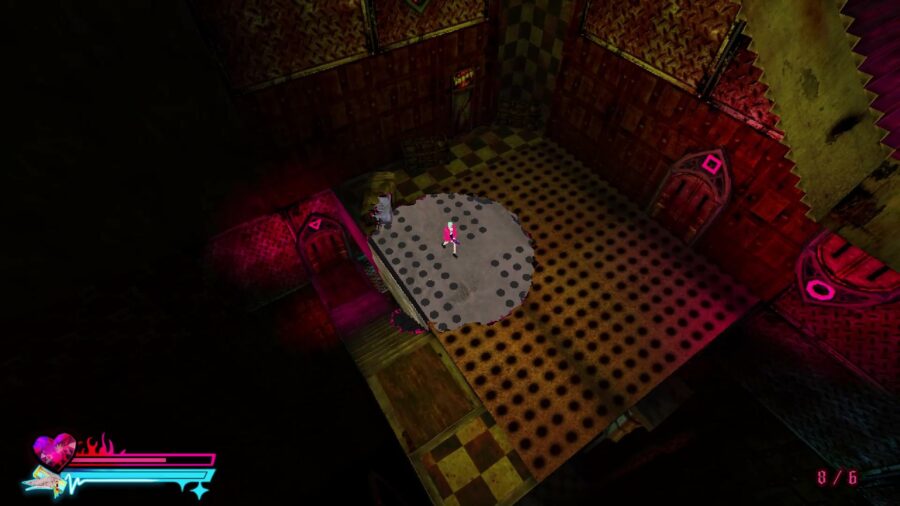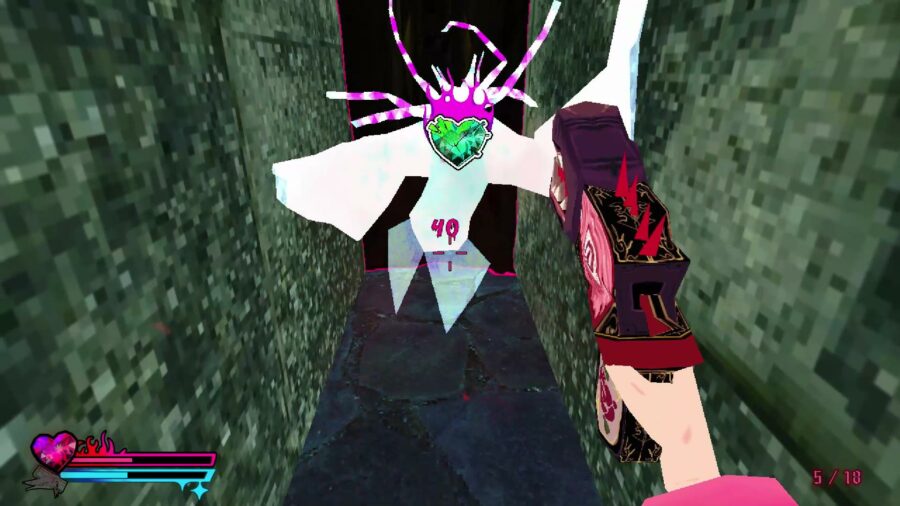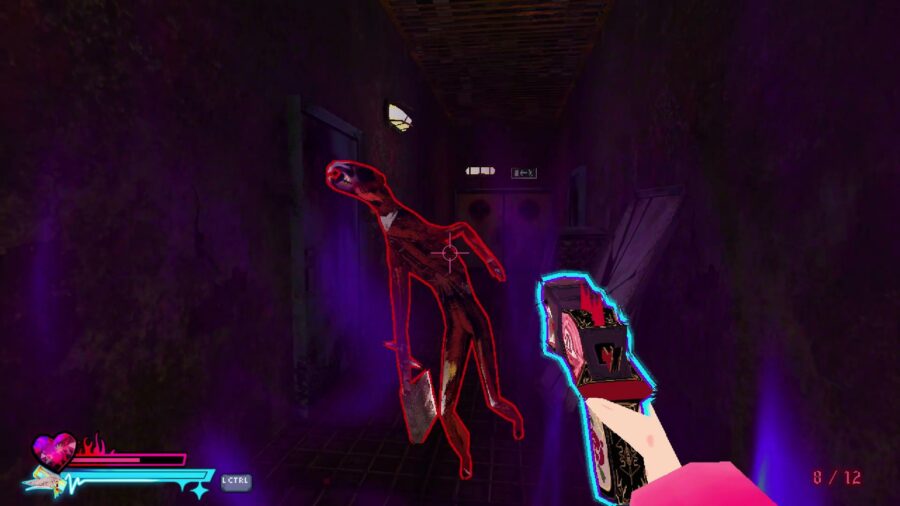I want to call Sorry We’re Closed something like “survival romance.” It’s a game about what happens when love goes bad: losing it, wanting it for the wrong reasons, not liking the changes that have happened in its wake.
It’s easiest to describe SWC as another revival of old-school survival horror, but that’s somewhat reductive. As an overall experience, it’s a messy concept album, full of strange asides, shifts in tone, toxic relationships, (in)human disasters, awkward combat mechanics, and sudden moments of shocking gore. If Nicholas Winding Refn hasn’t played this yet, he probably should.
Michelle is a convenience-store clerk who’s still hopelessly in love with her ex-girlfriend. As a result, Michelle’s just going through the motions: work, eat, sleep, repeat. It doesn’t help that Michelle’s ex has scored a starring role in a locally popular soap opera, so everywhere Michelle looks, there she is.
Michelle’s loneliness draws the attention of a demon called the Duchess, who preys upon the lovesick. The next morning, Michelle wakes up cursed, with a magical Third Eye on her forehead. She’s been marked by the Duchess as her next target of obsession, and the Duchess will return in a few days to abduct Michelle. At that point, Michelle’s as good as dead.
The Third Eye lets Michelle see through illusions, which reveals that she’s always been surrounded by the supernatural. With the help of her best friend Robyn, who’s been a demon all along, Michelle tries to find a way to undo the curse, defeat the Duchess, and/or find a way to benefit from the situation.
Initially, Sorry We’re Closed comes off like a glam-rock spin on Silent Hill, or maybe Fatal Frame filtered through David Bowie’s Ziggy Stardust period. With Robyn in tow, you’re sent to explore several of the abandoned buildings that hold special significance to the occult underground of Michelle’s city. You’re quickly equipped with an axe, pistol, and shotgun, which you use to fend off the local demon population.

SWC is built around Michelle’s Third Eye, which you can activate at any time to reveal secrets or vulnerabilities in a short area around Michelle. This lets you get around obstacles, find hidden puzzle solutions, and transition between layers of reality. Whenever you get stuck, the answer is usually to take a second look with your Third Eye open.
The Third Eye also forms the core of SWC’s combat mechanics. You can shoot most demons from a distance to inflict small amounts of damage, but if you wait until they get close, you can activate the Third Eye to stun them and reveal their hearts. A successful shot to a demon’s heart inflicts significantly more damage, extends the stun, and sets up a combination attack that might kill them on the spot. When it works, it feels incredible; when it doesn’t, you’ve set yourself up to get your ass kicked.
That mechanic is why I nearly didn’t finish SWC. It’s a system that’s effectively built around high-risk, high-reward dueling, where Michelle’s at her best in one-on-one fights. You don’t have any good options to deal with multiple targets at once, but that’s most of what you fight for the latter two-thirds of the game. It’s a system that’s set up to give you a couple of major vulnerabilities, which the encounter design proceeds to exploit.

That kind of combat has always been a recipe for frustration. The single toughest fight in SWC is about halfway through the second zone, where you have to take on SWC’s version of the Resident Evil 4 cabin siege. If you can get through that, everything after it including the final boss is a comparative cakewalk.
That also marks the point at which SWC opens up. Once you get out of that zone, it breaks away from the “indie survival horror” mold and turns into something more like a violent queer rock opera. It’s colorful, well-written, and expansive, with an unsubtle but important message about love, relationships, and toxic cycles of behavior.
You can also opt to side with or backstab various characters and factions within the city, up to and including the decision to voluntarily join the Duchess. (In case you’re still down bad for Lady Dimitrescu, SWC has the medicine.) It’s got a ton of story options for you to explore, so while it’s not a long game, there’s plenty here to keep you occupied for multiple runs.

After beating the game, however, most of what I remember about Sorry We’re Closed is my frustration with its combat. It’s not conceptually flawed, but there’s a real mismatch between what it lets you do and what it asks you to do. It could use an overhaul before I gave the game an unqualified recommendation.
As it is, Sorry We’re Closed is ambitious as hell for a small team’s debut project. It’s a sprawling, bloody epic that saves most of its best visuals for its back half. There’s real skill and effort on display here, but the game’s artificial difficulty holds it back.
[Sorry We’re Closed, developed by a la mode games and published by Akupara Games, is now available for PC via Steam for $24.99. This review was written using a Steam code sent to Hard Drive by an Akupara Games PR representative.]




